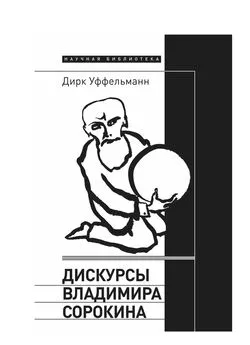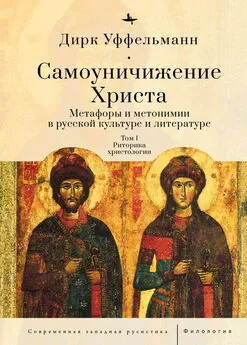Дирк Уффельманн - Дискурсы Владимира Сорокина
- Название:Дискурсы Владимира Сорокина
- Автор:
- Жанр:
- Издательство:Новое литературное обозрение
- Год:2022
- ISBN:978-5-4448-1669-1
- Рейтинг:
- Избранное:Добавить в избранное
-
Отзывы:
-
Ваша оценка:
Дирк Уффельманн - Дискурсы Владимира Сорокина краткое содержание
Дирк Уффельманн — профессор Института славистики Гисенского университета им. Юстуса Либиха.
Дискурсы Владимира Сорокина - читать онлайн бесплатно ознакомительный отрывок
Интервал:
Закладка:
Jackson M. J. (ed.). The Experimental Group: Ilya Kabakov, Moscow Conceptualism, Soviet Avant-Gardes. Chicago (IL), London: The University of Chicago Press, 2010.
Kagarlitsky B. Russia under Yeltsin and Putin: Neo-Liberal Autocracy. London, Sterling (VA): Pluto, 2002.
Kalfus К. They Had a Hammer // The New York Times. April 15, 2007: https://www.nytimes.eom/2007/04/15/books/review/Kalfus.t.html(дата обращения: 06.03.2021).
Kalinin I. The Blue Lard of Language: Vladimir Sorokin’s Metalingual Utopia // Roesen T., Uffelmann D. (eds.). Vladimir Sorokin’s Languages. Bergen: University of Bergen, 2013. P. 128-147.
Kalinin I. Why «Two Russias» Are Less than «United Russia»: Cultural Distinctions and Political Similarities: Dialectics of the Defeat // Beumers B., Etkind A., Gurova O., Turoma S. (eds.). The Shrew Untamed: Cultural Forms of Political Protest in Russia. London: Routledge, 2017. P. 48-67.
Kasper К Das Glockchen und die Axt in Sorokins «Roman» // Burkhart D. (Hg.). Poetik der Metadiskursivitat: Zum postmodernen Prosa-, Film- und Dramenwerk von Vladimir Sorokin. Munchen: Sagner, 1999. S. 103-114.
Kasper К Die Zukunft der Vergangenheit: Das «Neue Mittelalter» im russischen Gegenwartsroman// Osteuropa. 2014. 64.7. S. 121-139.
Kasper К Terror der Opricnina oder Dikatur der Vampire? Vladimir Sorokin und Viktor Pelevin warnen vor Russlands Zukunft // Osteuropa. 2007. 57.10. S. 103-125.
Kasper К Vladimir Sorokin: Roman // Zelinsky B. (Hg.). Der russische Roman. Koln et al: Bohlau, 2007. S. 472M87.
Kharkhordin O. The Collective and the Individual in Russia: A Study of Practices. Berkeley (CA) et al.: University of California Press., 1999.
Kiem E. «Ice» by Vladimir Sorokin // Bookslut. 2007. February: http://www.bookslut.com/fiction/2007_02_01061l.php.
Klepikova T. Crossing Soviet Thresholds: Privacy, Literature, and Politics in Late Soviet Russia. PhD dissertation. University of Passau, 2018.
Koschmal W. Ende der Verantwortungsasthetik? // Peters J.-U., Ritz G. (Hg.). Enttabuisierung: Essays zur russischen und polnischen Gegenwartsliteratur. Bern et al.: Lang, 1996. S. 19-43.
Kotkin S. A Dystopian Tale of Russia’s Future // The New York Times. March 11, 2011: https://www.nytimes.com/2011/03/13/books/review/book-review-day-of-the-oprichnikby-vladimir-sorokin.html.
Kovalev M. Empty Words? The Function of Obscene Language(s) in Vladimir Sorokin’s «Blue Lard» // Roesen T., Uffelmann D. (eds.). Vladimir Sorokin’s Languages. Bergen: University of Bergen, 2013. P. 148-169.
Kozak B. Rosja za kamiennym murem: Nowe sredniowiecze w tworczosci Wladimira Sorokina (na przykladzie powiesci «Dzien opryeznika») // Acta Neophilologica. 2016. 18. Olsztyn: Wydawnictwo Uniwersytetu Warminsko-Mazurskiego. S. 213-221.
Kukulin I. From History as Language to the Language of History: Notes on «The Target» // Roesen T., Uffelmann D. (eds.). Vladimir Sorokin’s Languages. Bergen: University of Bergen, 2013. P. 314-344.
Kustanovich К V. Vladimir Georgievich Sorokin (7 August 1955-) // Dictionary of Literary Biography. Vol. 285. Russian Writers since 1980. Farmington Hills (MI): Gale, 2004. P. 301-315.
Lachmann R. Der Bachtinsche Groteskebegriff und die postsowjetische Literatur (das Beispiel Vladimir Sorokin) // kultuRRevolution. 2004. 48.2. S. 44-51.
Lachmann R.: Lager und Literatur: Zeugnisse des GULAG. Konstanz: Konstanz University Press, 2019.
Laird S. Preface // Sorokin V. The Queue. Trans. S. Laird. New York: New York Review Books, 2008. P. vii-x.
Langeveld A., Weststeijn W. G. Moderne Russische literatuur: Van Poesjkin tot heden. Amsterdam: Pegasus, 2005.
Lawrence A. Vladimir Sorokin 1955— // Trudeau L. J. (ed.). Contemporary Literary Criticism: Criticism of the Works of Today’s Novelists, Poets, Playwrights, Short-Story Writers, Scriptwriters, and Other Creative Writers. Vol. 374. Farmington Hills (MI): Gale, 2015. P. 167-320.
Ledeneva A. V. Russia’s Economy of Favours: Blat, Networking and Informal Exchange. Cambridge: Cambridge University Press, 1998.
Leitner A. Der Absturz ins Gluck: «Tridcataja ljubov’ Mariny» von Vladimir Sorokin // Burkhart D. (Hg.). Poetik der Metadiskursivitat: Zum postmodernen Prosa-, Film- und Dramenwerk von Vladimir Sorokin. Mtinchen: Sagner, 1999. S. 95-101.
Lipovetsky M. Fleshing / Flashing Discourse: Sorokin’s Master Trope // Roesen T., Uffelmann D. (eds.). Vladimir Sorokin’s Languages. Bergen: University of Bergen, 2013. P. 25-47.
Lipovetsky M. Postmodernist Novel // Dobrenko E., Lipovetsky M. (eds.). Russian Literature since 1991. Cambridge: Cambridge University Press, 2015. P. 145-166.
Lipovetsky M. Post-Soviet Literature between Realism and Postmodernism // Dobrenko E., Balina M. (eds.). The Cambridge Companion to Twentieth Century Russian Literature. Cambridge: Cambridge University Press, 2011. P. 175-193.
Lipovetsky M. The New «Norma»: Vladimir Sorokin’s «Telluria» and Post-Utopian Science Fiction // Suslov M., Bodin P.-А. (eds.). Utopian Worlds in Post-Soviet Russia: Politics, Fiction and Fantasy. London et al.: I. B. Tauris, 2019. P. 301-314.
Lipovetsky M. Vladimir Sorokin’s «Theater of Cruelty» // Balina M., Condee N., Dobrenko E. (eds.). Endquote: Sots-Art Literature and Soviet Grand Style. Evanston (IL): Northwestern University Press, 2000. P. 167-192.
Lorkova Z. (ed.). Vladimir Sorokin: Tvorca mnohych tvari. Interpretacne podoby v slovenskom kulturnom priestore. Bratislava: Stimul, 2011: http://stella.uniba.sk/texty/ZL_sorokin.pdf.
Lorkova Z. Tragedia ruskeho cloveka v tvorbe V. Sorokina // Lorkova Z. (ed.). Vladimir Sorokin: Tvorca mnohych tvari. Interpretacne podoby v slovenskom kulturnom priestore. Bratislava: Stimul, 2011. S. 39-47.
Lorkova Z. Vychod verzus Zapad v diele «Opricnikov den» // Lorkova Z. (ed.). Vladimir Sorokin: Tvorca mnohych tvari. Interpretacne podoby v slovenskom kulturnom priestore. Bratislava: Stimul, 2011. S. 64-72.
Lunde I. Keen som sprakrom // Sorokin V. Keen. Oslo: Flamme, 2009. S. 9-13.
Lunde I. Simultaneity of the Non-Simultaneous: On the Diachronic Dimensions of Language in Sorokin // Roesen T., Uffelmann D. (eds.). Vladimir Sorokin’s Languages. P. 298-313.
Machoninova A. Sorokin, Vladimir. Den opricnika// iLiteratura.cz. 15. ledna2007: http://www.iliteratura.cz/Clanek/20467/sorokin-vladimir-den-opricnika(дата обращения: 06.03.2021).
Marsh R. Literature, History and Identity in Post-Soviet Russia, 1991-2006. Oxford: Lang, 2007.
Menzel B. The Occult Revival in Russia Today and Its Impact on Literature // The Harriman Review. 2007. 16.1. P. 1-14.
Morelli E. The Deconstruction of Representation in Vladimir Sorokin’s Short Stories // Transcultural Studies. 2006. 2. P. 261-277.
Morson G. S. The Boundaries of Genre: Dostoevsky’s «Diary of a Writer» and the Traditions of Literary Utopia. Austin (TX): University of Texas Press, 1981.
Mortensen S. A. Russlands uforutsigbare fortid // Vagant. 30.12.2017: http://www.vagant.no/vladimir-sorokins-spadommer-om-russlands-uforutsigbare-fortid/(дата обращения: 06.03.2021).
Murasov J. Das unheimliche Auge der Schrift: Mediologische Analysen zu Literatur, Film und Kunst in Russland. Munchen: Fink, 2016.
Murav H. Sorokin’s Lawsuits and the Boundaries of the National Body // Compar(a)ison. 2003. 1. P. 73-80.
Naumann K. Russische Satire im 21. Jahrhundert als Zeitkommentar: Vladimir G. Sorokins «Sacharnyj Kreml’» und Oleg Kasins «Roissja vperde». Dissertation. Universitat Kiel, 2017.
Nazarenko T. Vladimir Sorokin. Led // World Literature Today. 2003. 77.2. P. 133— 134.
Noordenbos B. Post-Soviet Literature and the Search for a Russian Identity. New York: Palgrave Macmillan, 2016.
Nove A. Glasnost in Action: Cultural Renaissance in Russia. Winchester (MA) et al.: Unwin Hyman, 1989. P. 217-255.
Obermayr B. Choosing a Different Example Would Mean Telling a Different Story: On Judgement in «Day of the Oprichnik» // Roesen T., Uffelmann D. (eds.). Vladimir Sorokin’s Languages. Bergen: University of Bergen, 2013.
Obermayr B. Die Liebe zum Willen zur Wahrheit: Der Hohepunkt als ExzeB der Macht in «Tridcataja ljubov’ Mariny» // Burkhart D. (Hg.). Poetik der Metadiskursivitat: Zum postmodernen Prosa-, Film- und Dramenwerk von Vladimir Sorokin. Munchen: Sagner, 1999. S. 81-93.
Obermayr B. Man f... nur mit dem Herzen gut: Pornografien der Liebe bei Vladimir Sorokin // Metelmann J. (Hg.). Porno-Pop: Sex in der Oberflachenwelt. Wurzburg: Konigshausen & Neumann, 2005. S. 105-123.
Obermayr В . Verfemte Teile eines Werkes: Sorokin zwischen Sub- und Pop(ular)kultur // Grtibel R., Kohler G.-B. (Hg.). Gabe und Opfer in der russischen Literatur und Kultur der Moderne. Oldenburg: BlS-Verlag der Carl-von-Ossietzky-Universitat, 2006. S. 519-552.
Ohme A. Iconic Representation of Space and Time in Vladimir Sorokin’s Novel «The Queue» // Muller W. G., Fisher O. (eds.). From Sign to Signing: Iconicity in Language and Literature. Vol. 3. Amsterdam: John Benjamins, 2003. P. 153-165.
Orens G. Sorokin, Vladimir // Curry J., Ramm D., Rich M., Rolls A. (eds.). World Authors 2000-2005. New York, Dublin: H. W. Wilson, 2007. P. 702-705.
Paulsen M. Hegemonic Language and Literature: Russian Metadiscourse on Language in the 1990s. PhD dissertation. University of Bergen, 2009.
Paulsen M. The Latin Alphabet in Sorokin’s Works // Roesen T., Uffelmann D. (eds.). Vladimir Sorokin’s Languages. Bergen: University of Bergen, 2013.
Pavlenko A. Sorokin’s Soteriology // Slavic and East European Journal. 2009. 53.2. P. 261-277.
Pietras E. Moskiewski konceptualizm — mi^dzy awangarda a postmodernizmem // Acta Neophilologica. 9. Olsztyn: Wydawnictwo Uniwersytetu Warminsko-Mazurskiego, 2007. S. 131-142.
Polonsky R. Violent, Ecstatic Russians // The New York Review of Books. March 22, 2012. P. 28-30.
Porter J. Introduction to the Forum «The Queue in Soviet and Post-Soviet Literature and Culture» // Slavic and East European Journal. 2017. 61.3. P. 90-494.
Porter R. Russia’s Alternative Prose. Oxford, Providence (RI): Berg, 1994.
Poyntner E. Der Zerfall der Texte: Zur Struktur des Hasslichen, Bosen und Schlechten in der russischen Literatur des 20. Jahrhunderts. Frankfurt a. M. et al.: Lang, 2005.
Qualin A. Rituel, violence et perversion: la drole de cuisine de Vladimir Sorokine // La Revue Russe. 2015. 44. P. 175-184.
Rasanen S. Особенности национальной охоты на писателя: Литературная борьба 2002 года вокруг романа Владимира Сорокина «Голубое сало». Дипломная работа. Хельсинкский университет, 2005.
Ritter М. Alltag im Umbruch: Zur Dynamik von Offentlichkeit und Privatheit im neuen Russland. Hamburg: Kramer, 2008.
Roesen T. Drive of the Oprichnik: On Collectivity and Individuality in «Day of the Oprichnik» // Roesen T., Uffelmann D. (eds.). Vladimir Sorokin’s Languages. Bergen: University of Bergen, 2013. P. 266-281.
Читать дальшеИнтервал:
Закладка:


